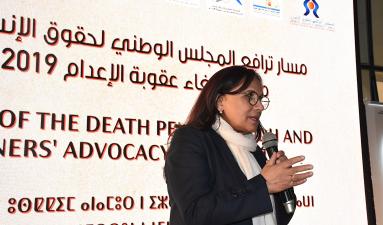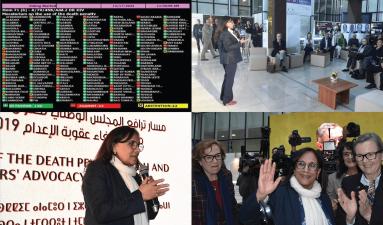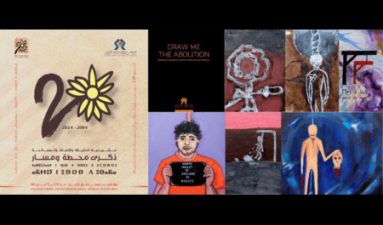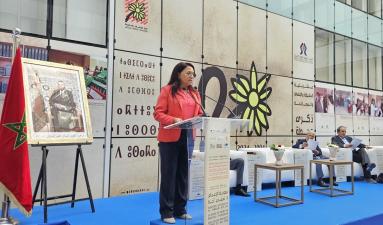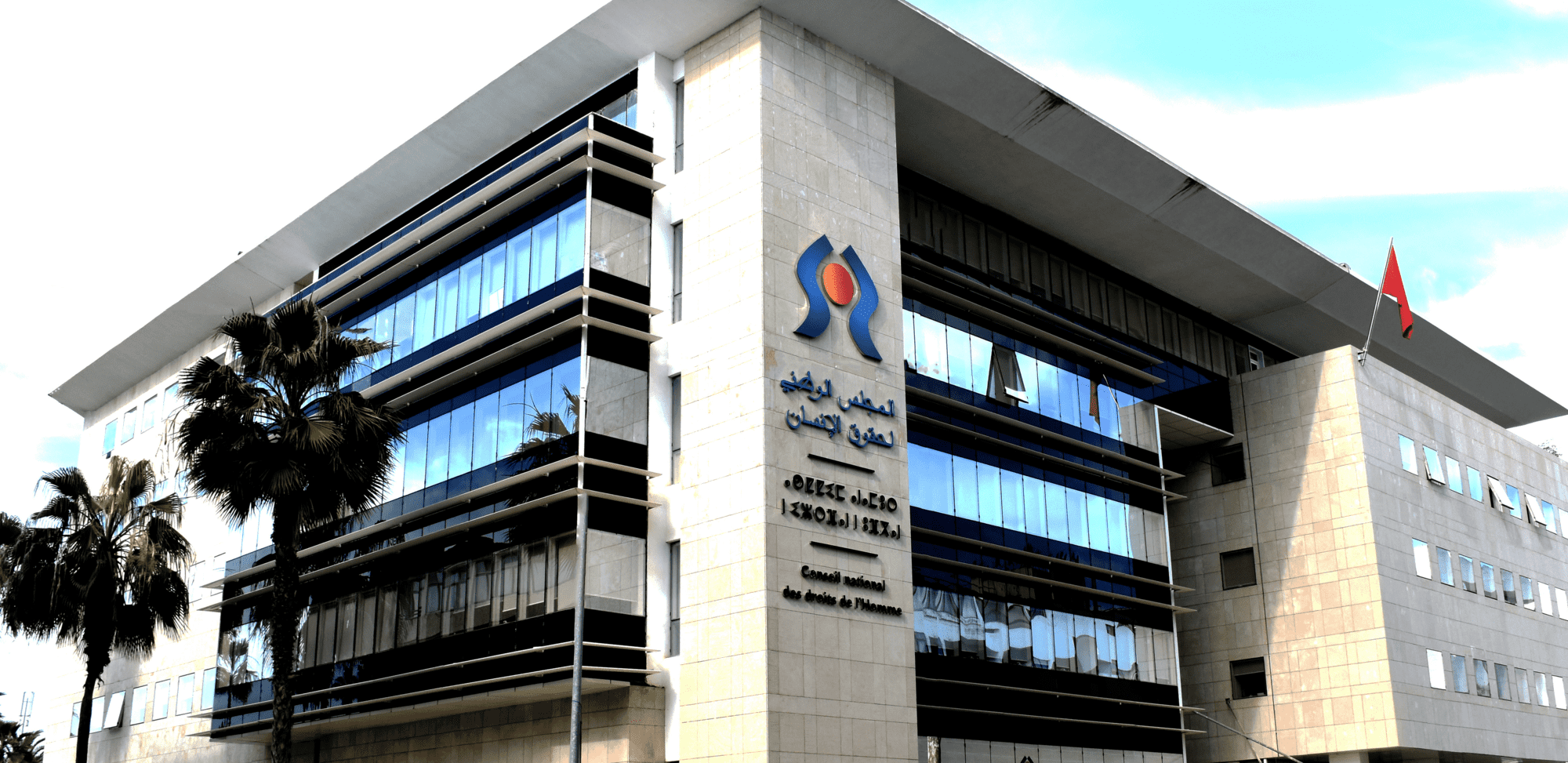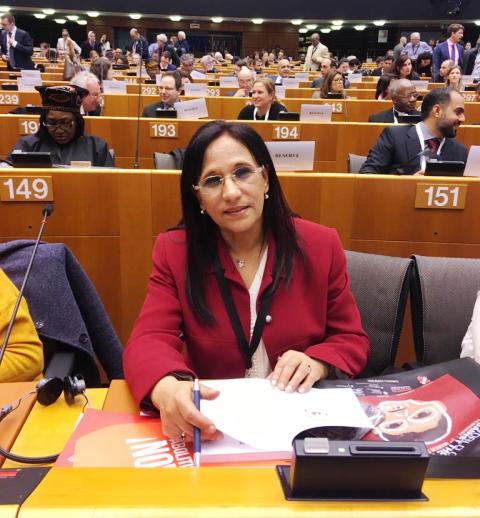
More than 1,500 stakeholders from 115 different countries came together in the 7th World Congress Against the Death Penalty from 26 February to 1 March 2019 in Brussels, Belgium.
Ministers, parliamentarians, members of civil society and journalists shared in this meeting a common purpose namely the abolition of the death penalty.
Abolition of the death penalty is an overall tendency. 144 countries and territories have already abolished the death penalty. Progress is evident, yet much is still to be done. 993 executions were reported in 23 countries and more than 20,000 were in the death rows in 2017.
A particular focus was given to the African continent. Delegations of ministers, parliamentarians and personalities of civil society from Africa took part in this event. Morocco was significantly represented at this Congress by a delegation composed of government, the National Human Rights Council (CNDH), parliamentarians and the main abolitionist NGOs.
Mrs. Amina Bouayach, CNDH Chairperson participated in the opening ceremony of the Congress. As the CNDH is one of the institutions that has recommended the abolition of the death penalty, she said. Mrs. Bouayach also underlined the right of life as a “fundamental right” enshrined in the Moroccan constitution.
The CNDH is distinctly involved in following up and reflecting on the state of death penalty in the African continent and the Maghreb within the framework of side events organized during this Congress. Within this context, the CNDH is co-organizing a side event on the role of National Human Rights Institutions (NHRIs) in advocacy and mobilization against the death penalty.
This later will be held in partnership with the Association Together Against the Death Penalty (ECPM) on 1 March from 9 am to 11 am at Egmont Palace, blue room, Brussels, Belgium. Connecting around 15 NHRIs, this event will be moderated by Mustapha Najmi, consultant to the CNDH President. This event will culminated in a calling for a greater involvement of NHRIs in the abolitionist combat which will be read at the closing ceremony.
The opening ceremony of this Congress was also an opportunity for a number of states and intergovernmental organizations to express their international commitment and to demonstrate the progress made in their countries in fighting death penalty.
Within this context, M. Mohamed Oujjar, Minister of Justice of Morocco, highlighted the global commitment of Morocco to protect human rights. The progressive approaches used to handle the issue of the death penalty and the right to life as provided in the 2011 Constitution was the focus of his speech. He also shed light on the letter of His Majesty King Mohammed VI to the participants of the World Human Rights Forum in Marrakech in 2014 welcoming the public debates on this issue.
Besides, M. Oujjar addressed the importance of the legislative measures currently discussed in the parliament reducing the scope of the death penalty.
While affirming his optimism about the future steps to be taken within this area, M. Oujjar concluded his speech by welcoming the achievements of NGOs strongly involved in this fight, despite challenges related to the international and regional geopolitical context.
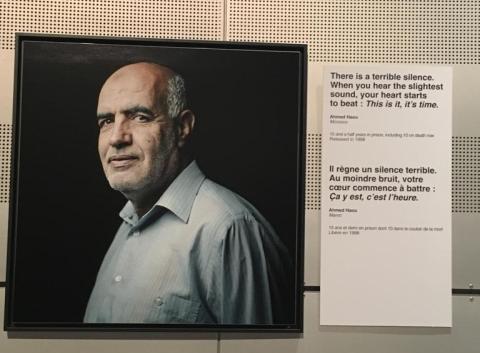
Photo of Ahmed Haou, CNDH Human Rights Officer, who was in death rows in the past.


